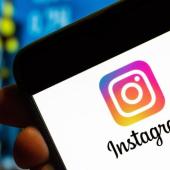From a Simple Idea to a Global Phenomenon: The History of Twitter
In the early 2000s, Jack Dorsey was working as a programmer in Silicon Valley and thinking about ways to improve communication. He had the idea for a platform that would allow people to send short, concise messages to each other, sort of like a cross between SMS and instant messaging. He called this concept "Twttr" and started working on it as a side project.
Dorsey teamed up with fellow programmers Biz Stone and Evan Williams to turn Twttr into a reality. The team launched the first version of Twitter in March 2006, and it quickly caught on with early adopters. The platform allowed users to send and receive short messages, known as "tweets," to a group of followers.
Twitter's early success was due in part to its simplicity and versatility. It could be used for a variety of purposes, from personal updates to business communication. And as the platform grew, so did its functionality, with features like hashtags, retweets, and the ability to embed multimedia content.
In 2007, Twitter became a sensation at the South by Southwest (SXSW) festival in Austin, Texas. The platform was used by attendees to share information and updates about the festival, and it gained widespread media coverage as a result. This event marked a turning point for Twitter, as it became clear that the platform had the potential to be much more than just a niche communication tool.
As Twitter's user base grew, so did its influence. The platform was used to organize protests, share breaking news, and even connect with astronauts in space. Celebrities, politicians, and business leaders all flocked to the platform to share their thoughts and connect with their followers.
Twitter's popularity also attracted the attention of investors, who saw the platform's potential for advertising and other revenue streams. In 2008, the company raised $20 million in funding, and in 2013 it went public, with an initial public offering that valued the company at $31 billion.
Today, Twitter has over 330 million monthly active users, making it one of the most popular social media platforms in the world. The platform has been used to spark social and political movements, connect people across the globe, and even break news before traditional media outlets.
While Twitter's impact has been undeniably significant, it hasn't been without its challenges. The platform has faced criticism for its handling of hate speech, misinformation, and other forms of abusive content. And like many other social media platforms, Twitter has struggled to find the right balance between protecting free speech and keeping its users safe.
Despite these challenges, Twitter remains an important part of our cultural landscape, a platform that allows people from all walks of life to connect and share their ideas with the world. And as the platform continues to evolve, it's anyone's guess what the next chapter of Twitter's history will hold.



